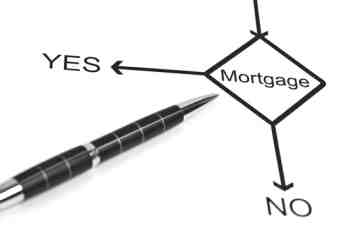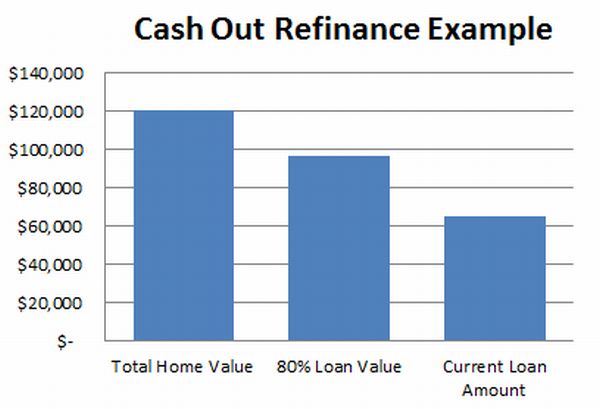10 Mortgage Mistakes and How to Avoid Them
 Few transactions are as confusing and costly as obtaining a first mortgage or refinancing an existing mortgage or owned property. Between the excitement, the paperwork, and the planning, for those without degrees in finance, mortgage mistakes are easy to make.
Few transactions are as confusing and costly as obtaining a first mortgage or refinancing an existing mortgage or owned property. Between the excitement, the paperwork, and the planning, for those without degrees in finance, mortgage mistakes are easy to make.
Compounding the issue, despite increased regulation, banks have little incentive to explain the process to borrowers in truly understandable terms.
Although banks lost billions of dollars during the recession on risky mortgage bets, mortgages remain one of the biggest profit movers for financial institutions; in fact, according to the New York Times, banks are profiting even more now from mortgages than they did five years ago.
Unfortunately, very few of us will be able to purchase a home or property without a mortgage. This makes mortgages something of a necessary evil, even though they represent a large debt inflated by fees and interest charges. Knowing the mortgage mistakes to avoid will help simplify the process.
The Top 10 Mortgage Mistakes People Make – and Solutions
The best way to protect yourself from a major mortgage mistake or refinancing mistake is to become an educated consumer.
Even before you begin filling out paperwork for a mortgage or refinance, do research on common requirements, rates, fees, and restrictions so that you know what to expect.
This includes knowing the top ten mortgage mistakes people make so you can avoid making the same mistakes:
Assuming your primary bank has the best mortgage offer. It’s an old adage that the longer you do business with a financial institution, the more eager they will be to work with you again.
Shop around for a better deal – you have about a two-week grace period after the first mortgage-related credit inquiry until multiple inquiries begin to hurt your credit; within those first two weeks, it’s obvious you’re looking for the best deal on a mortgage, which won’t reflect negatively on you.
Another option you may wish to explore is wholesale mortgage bankers who tend to give you discounted rates on your mortgage.
Overleveraging yourself, or buying “too much house.” A good indicator of whether you are buying more houses than you can actually afford is the need for a second mortgage.
If you need a second mortgage to close the deal, you either do not have a strong enough down payment or are not making enough money to afford the property you are trying to buy.
Determine your ideal mortgage amount using Bankrate’s Mortgage Calculator, and if necessary wait to buy until you can increase your down payment to qualify for a single mortgage.
Taking a zero-down mortgage. There are few circumstances where accepting a zero-down mortgage makes sense for anyone but the lending bank. In general, mortgages without a down payment have higher interest rates, higher closing costs, and longer repayment terms.
I firmly believe that if you do not have the money for a down payment, the time is not right for a property purchase. If you do have the down payment available, you will save yourself money in the long term by putting it down at the closing table.
Refinancing too frequently. When you refinance a mortgage, you are canceling the first mortgage in favor of a second. This usually makes sense when interest rates drop a percentage point or more below the rate you already have.
However, every time you refinance, you are paying closing costs and other fees. The costs can exceed the savings from interest rate drops, particularly if the interest rate is not substantially lower and you refinance frequently a huge refinance mistake.
Ask an accountant for help to determine if refinancing really makes sense for you.
Failing to calculate closing costs ahead of time. Closing costs can add tens of thousands of dollars to a mortgage; if you don’t have adequate cash at closing, the balance is usually rolled in to your mortgage.
These closing costs can easily make what looks like a great deal at first a rip-off and can be a huge surprise. When I closed on the house I’m living in now, I faced an additional $5,000 in costs the sellers decided not to cover but the bank decided not to tell us about it!
Ultimately we were able to free up the money and get it to the closing table, but make sure you know what to expect on the day you get the keys.
Agreeing to loan terms you don’t fully understand. There are many types of mortgages that most individuals will never need to know about, such as payment option ARMs and negative amortization mortgages.
These are nontraditional options designed for unique circumstances, but in my opinion, are meant only to coerce buyers to buy properties they can’t truly afford.
With any nontraditional or complex financial instrument, you must be speaking with an attorney to determine what your costs and responsibilities will be.
Using adjustable rate mortgages for long-term properties. Adjustable rate mortgages (ARMs) begin with an interest rate that is lower than average and step up to higher interest rates over time based on the rise in a benchmark interest rate, usually the Federal Funds Rate.
This means that your ARM rate will eventually outpace that of a traditional locked-in rate in most economies. As a rule of thumb, if you plan to own a property for longer than three to five years, an ARM will be more expensive than a traditional rate mortgage.
Relying on the loan officer to answer your questions. It’s a tough truth, but the loan officer works for the bank and has the bank’s best interests in mind, not yours.
It might surprise you to find out that at many banks, loan officers work on commission; even if they are on salary, these professionals are salespeople. Do your own research as far as you can, and always consult an attorney before committing to any contract.
Relying on the assessed value of a property. The value of a property as assessed by the county or state is rarely accurate and depends on the general value of land and square footage in the area based on recent home sales.
Since county tax assessors don’t usually look at, much less inside, properties for tax assessment purposes, the number can’t be relied on. Always use a certified appraiser to find a more accurate value.
Not keeping on top of the paperwork. There is nothing to compare to the amount of paperwork generated during a mortgage application and approval process. However, you must keep on top of all paperwork.
Failing to return documents timely or accurately completed can cause you to lose a favorable rate or other terms, and potentially the entire mortgage. This is a major mortgage mistake to avoid.
With these common mortgage mistakes and solutions in mind, shopping for a mortgage or refinance does not need to be daunting.
Be as diligent as you can, and be sure to ask a licensed attorney or accountant any questions you have prior to signing a loan agreement. If you do your research ahead of time, you are protecting your most valuable assets: Your money and your property.





